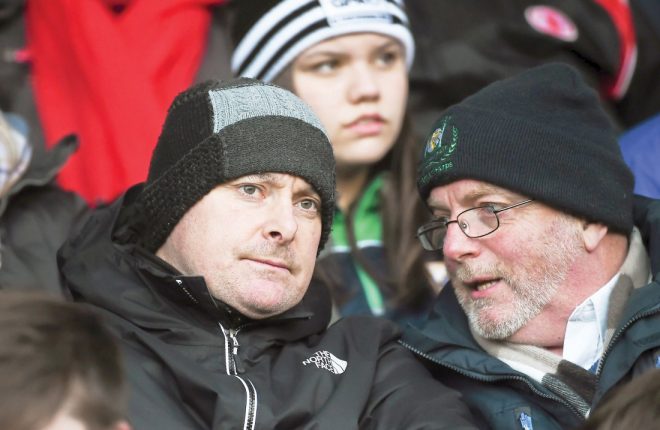
The best management teams will have ideas but also questions
With the Allianz National League almost wound up, most county Gaelic football managers and coaches will be formulating ideas on how to play to succeed in their forthcoming 2016 Championship campaign.
Teams like Leicester, Tottenham, Arsenal and the Manchester clubs will be generating ideas on how to win the Premiership as this season draws to a close. Joe
Schmidt will be searching for ideas for 2017 after surrendering their Six Nations title this Spring.
Ideas have their place and if they are shared then others will benefit. Asking questions and letting others contribute their thoughts has powerful benefits.
Compare the effects of sharing ideas with asking questions:
– Ideas tend to reduce discussion, while questions increase it.
– Your ideas are known to you, while questions draw out new ideas.
– Ideas narrow options, while questions broaden options.
– Ideas often focus too early on ‘How to?’ while questions explore objectives, meaning and priorities.
So, is it questions or ideas for best practice? You’ll have ideas even if you’re trying to ask questions instead, so turn good ideas into great questions. How? Take three steps:
1. Begin with your idea – Is it too specific, too focused with too many assumptions built into it?
2. Broaden the idea – Take your idea and broaden it to the topic/category behind your specific idea, eg, the ‘idea’ of how to tackle broadens into the four Ds of winning the ball back; Delay, Deny, Dispossess (tackle), Drive on.
3. Ask an open question – As about the category (four Ds of winning ball back), as an open question beginning with words like, “How, why, what, when, who, which; Which comes first? How is it used? What are its parts? etc. Call these ‘my idea questions’ or great questions. (Practice the three steps often.)
Using the three steps allows you to still influence the topic under discussion without controlling the idea or the outcome. It’s teamwork now in operation.
Your open questions help players explore and gain perspective. As manager/coach you now influence with questions rather than ideas – and that’s empowering for the team.
Ideas which emerge from staff and players in the talking can be questioned, built on and evaluated before usage.
Thus by using great questions, the coach helps players own the process of delivery and its outcome.
Could ideas then hinder success? Here are some reasons why they could:
1. Ideas are safe
Sound good, look good, but when shaped into a plan, some coaches are reluctant to move forward because taking action was too risky. Staying with the idea involves no risk.
2. Ideas are beautiful
There’s purity in ideas but turning them into action involves grappling with the messy parts of the game and some coaches can’t deal with that.
3. Ideas are motivating
Taking action has limitations. Ideas have no limitations. Ideas are exciting and motivating, but even where so much is possible, few ideas are acted on.
4. Ideas are illusions of success
When the going gets tough, it’s more fulfilling to work with ideas. Ideas deceive by presenting themselves as being of essential value, eg, a coach’s idea of ‘how to tackle/defend’ is often taken by players as the only/essential way to tackle.
Asking questions about ‘how to tackle/defend’ produces viable alternative/or ideas.
A valuable idea is one which is successfully acted on.
Receive quality journalism wherever you are, on any device. Keep up to date from the comfort of your own home with a digital subscription.
Any time | Any place | Anywhere











